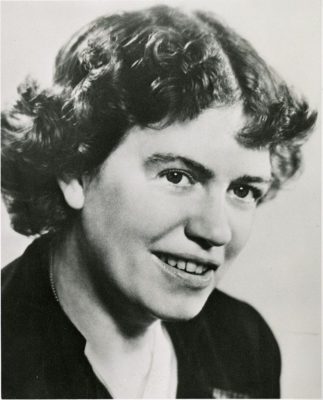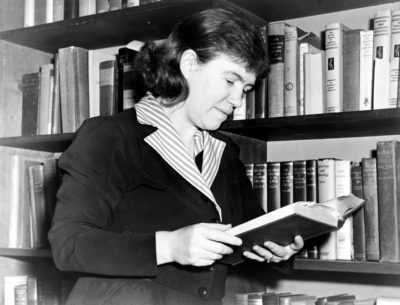
“Prayer does not use up artificial energy, doesn’t burn up any fossil fuel, doesn’t pollute. Neither does song, neither does love, neither does the dance.”
“To cherish the life of the world.” This is a phrase that defines the life and work of Margaret Mead. In fact, it is inscribed on her grave stone in Buckingham, PA. Born in 1901 into a family of social scientists and Quakers, Mead found the Episcopal Church at a young age, and was deeply involved throughout her life. Mead is best known for her work as a ground-breaking anthropologist. She received a Bachelor’s from Barnard College in 1923 and a Master’s from Columbia in 1924. Her first field study was of adolescent girls in Samoa in 1925. She went on to study three cultures in the western Pacific that were considered “primitive.” Her book, Sex and Temperament in Three Primitive Societies, was initially hailed by feminists for its theory that a person’s temperament was not determined solely by sex, but mostly by the expectations that society placed on that person’s sex. This was a revolutionary theory in Western scholarship.
“What people say, what people do, and what they say they do are entirely different things.”
Mead continued to study the ways that different cultures socialized children and supported (or didn’t) the nuclear family. However, Mead was profoundly affected by the advent of the atomic bomb. The bombing of Hiroshima and Nagasaki near the end of WWII caused her to refocus her research, studying new ways in which people could live in a world changed by new technology. She was always interested in the inter-connectedness of life on a global scale, and the nuclear age was a source of deep worry. She even returned to the “primitive” societies that she studied in the 1930s to revisit how the changing world had affected them.
“Mead popularized the term “generation gap.” She used the term to refer to generational differences in historical experience between individuals who were born before and after World War II. In her book Culture and Commitment: A Study of the Generation Gap (1970), she proposed that the young, accustomed to living in a world of change, were better equipped to understand a changing world than their parents. This and other opinions, including her opposition to the Vietnam War, endeared her to the younger generation.” Source

Source: Library of Congress Prints and Photographs Division, New York World-Telegram and the Sun Newspaper Photograph Collection
“The solution to adult problems tomorrow depends on large measure upon how our children grow up today.”
From 1967-1973, Mead consulted for the Subcommittee for the Revision of the Book of Common Prayer of the Episcopal Church. Upon her death in 1978, the House of Bishops adopted a Resolution of Thanksgiving for the life and work of Margaret Mead. Mead leaves a legacy as a pioneer in the field of anthropology. She sought to understand humanity in its many forms and cultures. She elevated the voices of women and challenged long-held assumptions. She was often controversial, but always pushing the limits of understanding the interconnected web of existence of which we are all a part.
“I must admit that I personally measure success in terms of the contributions an individual makes to her or his fellow human beings.”
